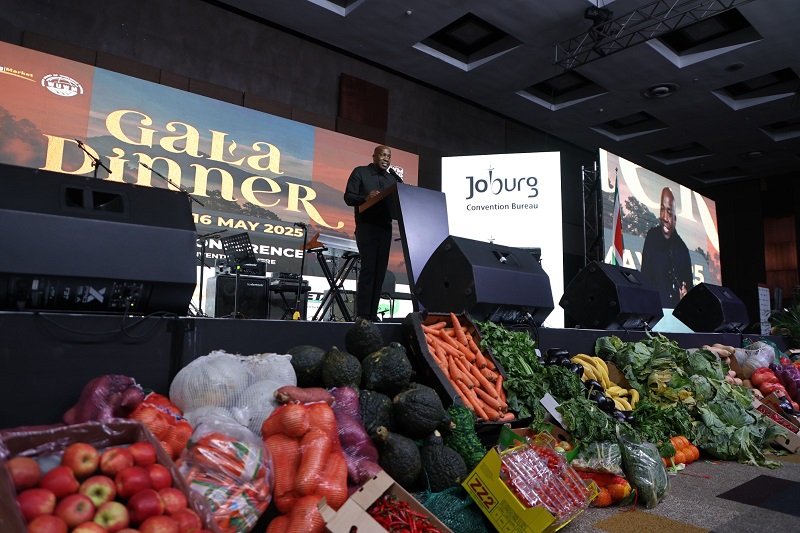THE Joburg Market has hailed the successful hosting of the World Union of Wholesale Markets (WUWM) conference—the first time the prestigious global event has been held on African soil.
Acting CEO of Joburg Market Sello Makhubela praised the milestone moment, saying it marks a turning point in the continent’s journey towards smarter, more sustainable food systems and improved agricultural infrastructure.
“International fresh produce markets possess a wealth of experience and technological advancements that can help us achieve our goals. The City of Johannesburg has brought a global pool of knowledge to our doorstep — knowledge we intend to leverage.”
The conference drew global experts, policymakers, trade economists, and food market stakeholders to Johannesburg to unpack the most pressing issues facing global and local food systems. A standout topic was the urgent need for resilient and self-sustaining agricultural value chains in light of changing trade patterns and climate threats.
Ayabonga Cawe, an economist with the International Trade Administration Commission of South Africa (ITAC), highlighted the country’s dual focus on food self-sufficiency and growing export capacity: “We are quite keen on building some semblance of self-sustenance in key commodity categories that are crucial to overcoming food insecurity. Secondly, we want at least a growing share of these products, where possible, to be exported.”
Economist Phelisa Nkomo noted that collaboration across borders is critical. “The key issue, which I believe enjoys global consensus, is that climate change presents a significant challenge. Therefore, global collaboration is essential. Food value chains are especially important because they contribute significantly to global greenhouse gas emissions — accounting for almost 35%.”
Dr Yolandi Ernst from the Global Change Institute warned of increasing temperatures and drying trends that will challenge farmers and food systems. “For Southern Africa, we expect drastic warming — almost twice the global rate.
The region is also likely to become drier, particularly in interior areas. Climate change will only exacerbate existing challenges in the agricultural sector.”
Dr Ernst also stressed the importance of locally driven solutions: “We need African-specific data, African-specific input, and African knowledge. It is essential that we calibrate models specific to the continent and develop our own solutions for our own problems.”
The Joburg Market, Africa’s largest fresh produce market, continues to position itself as a catalyst for food security, trade innovation, and inclusive growth in line with the City of Johannesburg’s vision of being a caring city that enables dignity through housing, infrastructure, and food security.
Image supplied (Acting CEO of Joburg Market Sello Makhubela).

